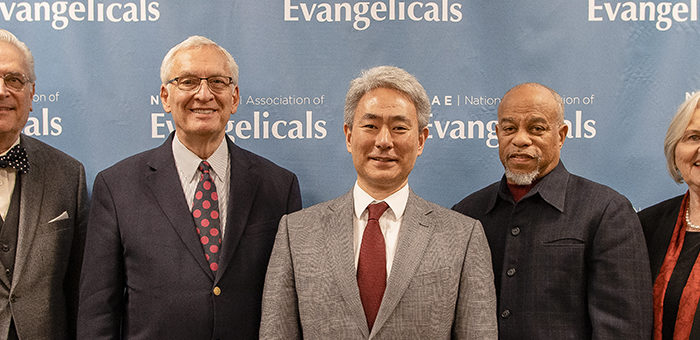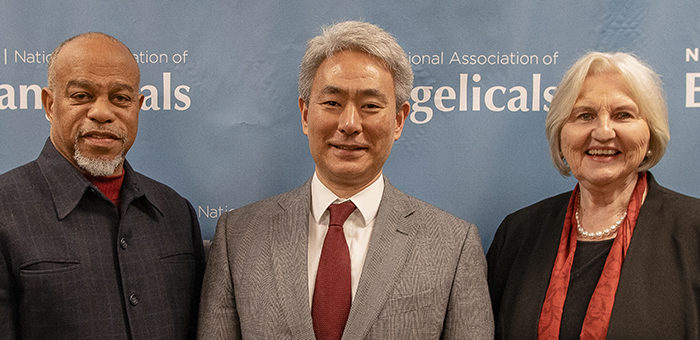One of the challenges we face regularly as ministry leaders is deciding when to speak and when not to speak on issues or events in our culture. It can be a heart-stretching decision. I’ve been asked on numerous occasions, “Why don’t you say something about topics like ‘X’?” It’s a good question.
Over the years, the leadership team at The Navigators has been asked to speak out on many topics. For example: abortion; political candidates; LGBT issues and same-sex marriage; refugees and immigration; race relations; class injustice; tax reform; women’s rights; creation stewardship (environmentalism); assisted suicide; and dignity and care for the elderly.
There are others, but you get the idea. It should be of little surprise that on a number of these topics, individuals within the Christian communities we serve have diverse experiences and opinions. In the world we seek to reach with the message of Christ Jesus, there is even broader disagreement.
The conundrum: How can we, as Christ-following leaders, present a pure and unencumbered gospel if we become increasingly defined by our stances on certain issues, rather than being known as men and women who seek to incarnate and proclaim the central message of the gospel of the Lord Jesus? Keeping the message of Jesus and his reign focused and pure proves impossible if it gets attached to any number of causes or issues.
Striking a balance is essential and most difficult. I don’t have the answers, but am walking in humility as a learner in this slippery dynamic. Here are four principles that may be helpful amid the tension of knowing when to speak and when not to speak:
Keeping focus. First and foremost, what is the mission of your organization or church? While many topics can be argued to be “gospel issues,” staying focused and speaking on the issues related to your organization or church’s unique contribution can help ensure, when you do speak, you are in the right conversation.
Being apolitical. For organizations and churches without a stated political purpose, you have a choice on whether or not to choose sides on political issues. During President Obama’s tenure and now with President Trump, there were and are members of our constituencies who want(ed) us to speak out against the policies of one or the other. In every administration, there are heightened emotions and accusations that a political official’s actions are evil, or that they have nefarious motives. It may even be true.
How can we keep the gospel free from political language? The ugliness of humanity that is often magnified in political debate seldom wins people to Jesus, and when that ugliness is attached to Jesus, it can even drive people away. Throughout history, there have been exceptions to this principle, when governments went “off the rails,” but at least based on what we read in the gospels, even Jesus had little to say on many of the issues of his day.
Addressing strategic priorities vital to accomplishing our mission. There may be certain strategic priorities that are so vital to our organization’s mission that they are worth speaking about, even though they are not our primary purpose. To retain focus when addressing secondary issues, we must be sure to connect the dots to why the area is essential to accomplishing our purpose. For example, it is a strategic priority for The U.S. Navigators to increase ethnic minority contribution in our organization. We have therefore chosen to speak on some significant cultural events related to the dignity and value of ethnic minorities to further reinforce this priority.
Standing with others in pain or opposing evil. In some situations (like natural disasters and mass shootings), we as leaders may speak up to call those around us to prayer or to stand together with others in the Body of Christ (Romans 12:15), in opposition to evil or in solidarity due to a natural or unnatural disaster (Matthew 5:13-16). We could fill unlimited pages speaking of the pain, distress and evil that exists in our desperately broken world, but when we do speak we must remain biblically rooted with hope and wisdom, and lean towards a message of compassion versus condemnation.
When Jesus spoke harsh words, they were almost exclusively directed at legalistic religious leaders (see Matthew 23:13-29) and the religious lies that kept people from experiencing the freedom found in the gospel. Jesus lived during a time of political tension. He lived among an oppressed people, under the power of an occupying government, and among people divided deeply by race, class and religion.
Yet he taught, modeled and led people to lives of love, joy, peace, patience, kindness, goodness, faithfulness, gentleness and self-control. While Jesus spent much time with the disenfranchised and vulnerable, he also showed that love was the answer for everyone, whether rich or poor, regardless of race, gender or social status. Jesus offered hope to all those he touched.
This contentious and broken world in which we live does not lend itself to easy answers on these issues, but let me offer a simple acrostic that may be helpful when the decision is made to speak:
Timely. Response may not happen in minutes or even hours, but for some events, response within days can be important.
Empathetic. Connect with the hearts and souls of those affected.
Acknowledge. Call the situation what it is. Affirm the brokenness and desperation of our world in light of the event, and in rare instances, call out sin.
Calling. Connect the message to your organization or church’s calling or mission.
Help. Let those affected know you stand ready to help, whether someone to talk with or tangible assistance.
As leaders seeking to follow Jesus and care for the flocks entrusted to us, we bear the weight of decisions on when to speak and when not to speak. But we also stand together, grounded in our common faith with a commitment to love Jesus and bring the hopeful, unencumbered message of the gospel to our broken world.
This article originally appeared in Evangelicals magazine.
Doug Nuenke has been the U.S. president of The Navigators for 10 years, though he has been with the ministry since the mid 90s. In his early years at The Navigators, he helped create and direct EDGE Corps, the Navigator’s campus leadership program. Prior to The Navigators, he served as pastor of student ministries at Cherry Hills Community Church in Denver, Colorado, and director of Doulas Ministries. He received a bachelor’s degree from Texas Christian University, and an M.Div. and D.Min. from Denver Seminary.




 View All Articles
View All Articles 





























